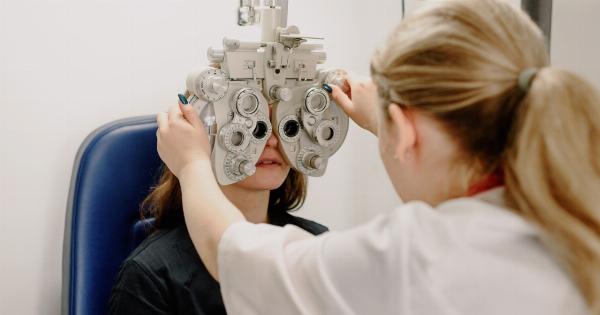Many people only consider visiting the eye doctor when they experience noticeable symptoms, such as blurry vision or eye discomfort. However, regular eye exams are essential for maintaining both your eye health and overall well-being.
Let’s dive into why regular eye exams are important and what you can expect during a comprehensive eye exam.
What Happens During a Comprehensive Eye Exam?
A comprehensive eye exam typically includes several tests and evaluations to check your visual acuity and overall eye health. Some of the most common tests during an eye exam include:.
1. Visual Acuity Test
A visual acuity test measures how well you can see at various distances. This test uses a chart with progressively smaller letters or symbols, and you’ll be asked to read each line from a certain distance.
This test helps determine if you need corrective lenses for nearsightedness, farsightedness, or astigmatism.
2. Refraction Test
A refraction test involves looking through a device that measures the way light enters your eye. This test helps your optometrist determine your exact prescription for corrective lenses.
3. Eye Muscle Test
Your optometrist will check how well your eye muscles work together to control eye movements and maintain focus. This test can also detect any muscle weakness or abnormalities that could affect your eye health.
4. Pupil Dilation
Your optometrist may administer eye drops to dilate your pupils, allowing them to get a better view of your retina and optic nerve. This test can help detect any signs of eye diseases, such as macular degeneration or glaucoma.
5. Visual Field Test
A visual field test measures your peripheral vision, detecting any blind spots or vision loss. This test can help detect eye diseases and neurological disorders that affect your vision.
Why Regular Eye Exams are Essential
Now that we know what happens during a comprehensive eye exam, let’s take a closer look at why regular eye exams are essential for maintaining your eye health and overall well-being.
1. Detecting Eye Diseases Early
Many eye diseases, including glaucoma and macular degeneration, don’t have noticeable symptoms until they’ve significantly progressed.
Regular eye exams can detect these diseases early, allowing for more effective treatment and better outcomes. Early detection is especially important for people with a family history of eye diseases or those with certain medical conditions, such as diabetes.
2. Managing Chronic Conditions
Regular eye exams can also help manage chronic conditions that affect eye health, such as high blood pressure and diabetes. Your optometrist can work with your primary care physician to manage these conditions and prevent any further vision loss.
3. Maintaining Overall Wellness
Your eyes are often referred to as the “windows to your soul,” and for a good reason. Many health conditions can affect your eyes, including high cholesterol, thyroid disease, and even certain types of cancer.
A comprehensive eye exam can detect any signs of these underlying health conditions, allowing for early treatment and better outcomes.
4. Keeping Your Prescription Up-to-Date
Even if you currently have corrective lenses, your prescription can change over time. Regular eye exams ensure your prescription stays up-to-date, allowing you to see clearly and prevent any eye strain or discomfort.
5. Protecting Your Vision
Last but not least, regular eye exams are essential for protecting your vision and preventing any vision loss.
Your optometrist can provide recommendations for protective eyewear, such as sunglasses or safety goggles, to prevent any eye injuries or damage to your eyes.
Conclusion
In conclusion, regular eye exams are essential for maintaining your eye health and overall well-being. They can detect eye diseases early, manage chronic conditions, maintain overall wellness, keep your prescription up-to-date, and protect your vision.
Make sure to schedule regular eye exams with your optometrist to keep your eyes healthy and happy!.


























